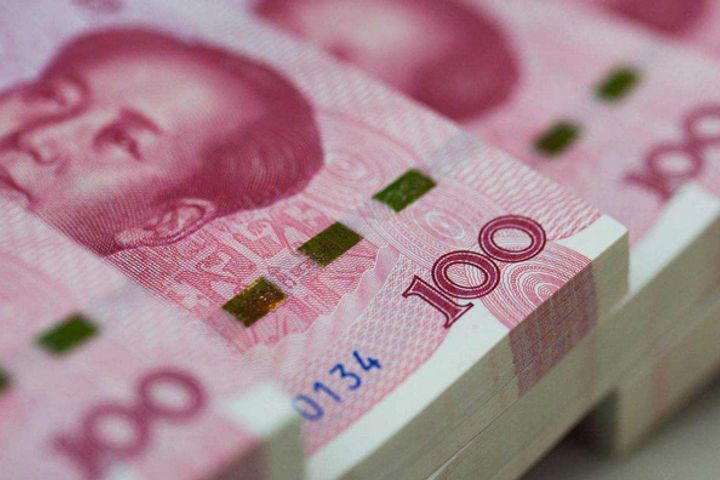 Global Governments May Snap Up Cheap Yuan to Boost Forex Reserves, Chinese Research Head Says
Global Governments May Snap Up Cheap Yuan to Boost Forex Reserves, Chinese Research Head Says(Yicai Global)Oct. 11 -- Governments around the world will increase their holdings of Chinese yuan as official foreign exchange reserves, and its short-term depreciation of the yuan may present an opportunity for them to buy despite the prospect of it falling further, the head of a financial research body said in an interview with Yicai Global.
"China is already the largest trading partner of many countries so it is necessary for them to hold more yuan assets as it facilitates settlement and economic and trade exchanges," Zhao Qingming, chief economist of China Financial Futures Exchange Research Institute said. "Diversified currencies are preferred in foreign exchange reserves, and the constitution of a nation's currency reserves is related to its economic and trade relations."
Governmental investment in foreign exchange reserves is highly stable compared with that of commercial institutional investors, Liu Linan, senior strategist at Deutsche Bank said, adding that yuan holdings will boost the continuous and steady inflow of Chinese capital and promote global balance of payments.
There is still much room for the yuan's share of global foreign exchange reserves to increase. Redback assets increased for the fourth straight quarter to USD193.4 billion in the second quarter this year to hit 1.84 percent of all reserve assets, compared with 1.07 percent at the end of 2017, data from the International Monetary Fund shows.
Comparatively, the US dollar's share decreased for the sixth straight quarter to 62.25 percent, while remaining the biggest worldwide. Its assets dropped to USD11.5 trillion in the second quarter this year.
The yuan's share of global foreign exchange reserves is still quite small, and some way off the 10.92 percent of the basket of currencies set by the IMF.
"The international foreign exchange market has been rather volatile since last year," Zhao said. "The US dollar has appreciated, the euro has depreciated, and the yuan has depreciated against the US dollar in the second and third quarters of this year. The yuan has performed well compared to the currencies of other emerging economies, however. So it is expected that foreign investors will increase their investments in yuan."
"Central banks around the globe need to continuously hold yuan assets, and the share of yuan assets will further increase." Liu said, adding that the improvement of the marketization of yuan's exchange rate will help the rate to remain stable in two-way fluctuations in the long term and falls in the short run, which provides an opportunity to buy yuan assets at a relatively low price.
"The market has foreseen that the US Federal Reserve System will continue to raise interest rates," Liu said. "Many investors are willing to lower their dollar holdings and raise other assets to avoid the risks related to the rising US dollar bond interest rates, which will benefit the yuan."
Take the 10-year government bond as an example, the profit rate at the beginning of this year once rose above 4 percent and is stable at around 3.6 percent. "A lot of foreign investors seized upon the opportunity to enter the yuan bond market during the crash at the beginning of the year." Liu pointed out.
Regardless of market factors, the increasing share of the yuan in global foreign exchange reserves shows that yuan assets are more attractive to central banks overseas. The driver for this is the government's reform and opening up of the financial sector.
"We are already on the way." Zhao told Yicai Global, saying that China has been committed to reforming the foreign exchange market and improve the marketization of exchange rates and the opening of capital accounts.
China's central bank has reduced its intervention in the foreign exchange market through various financial openness measures. Foreign investors can also hedge through foreign exchange forwards and derivatives, which have added to the attractiveness of yuan assets.
"The bond market's opening up has facilitated the participation of foreign investors in the Chinese bond market and attracted central banks and sovereign wealth fund investors thereby boosting yuan assets' share as part of foreign exchange reserves." Liu stated.
More than 1,000 overseas institutions have invested in the inter-bank bond market, with a debt holding of nearly CNY1.7 trillion (USD245.3 billion) as of the end of this July.
"Stable financial market and macroeconomy lead to the yuan's stable medium and long-term exchange rate. These factors will further attract foreign investors into holding yuan assets and making it a global currency." Liu added.
Editors: William Clegg